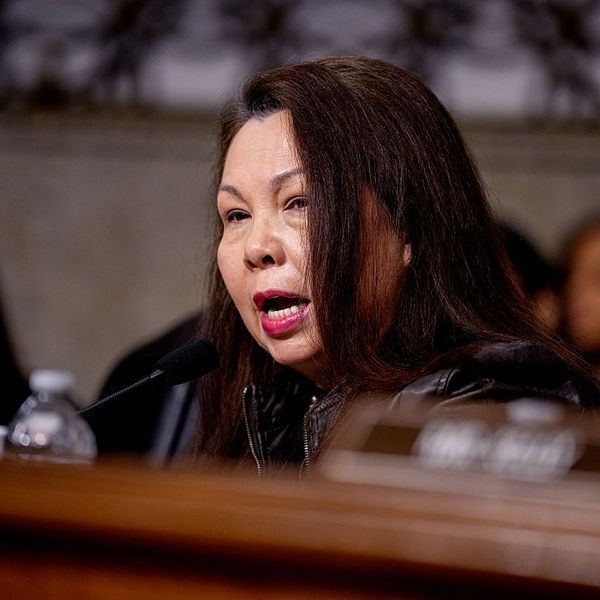Today, January 22, 2021, the world celebrates the establishment of a new international norm when the Treaty on the Prohibition of Nuclear Weapons (TPNW) enters into force. For 75 years the world has lived with the existential threat of nuclear war. For 50 years the United States, along with the other eight nuclear nations, have been obligated by the Nuclear non-Proliferation Treaty to work in good faith to abolish their nuclear arsenals. Yet the nuclear nations have neglected this obligation, following the lead of the U.S. by rebuilding their nuclear arsenals and accelerating a new arms race.
Tired of being bullied and realizing that the effects of nuclear weapons know no boundaries, non-nuclear nations have had enough. A majority of the worlds' nations endorsed the TPNW with 122 supporting the treaty when introduced at the U.N. in July 2017. Currently there are 86 signatory nations and 52 have ratified it. The treaty prohibits nations from developing, testing, producing, manufacturing, transferring, possessing, stockpiling, using or threatening to use nuclear weapons, or allowing nuclear weapons to be stationed on their territory. It also prohibits them from assisting, encouraging or inducing anyone to engage in any of these activities. At long last, nuclear weapons join all other weapons of mass destruction in being declared illegal by the states who are signatory to this treaty.
A nation that possesses nuclear weapons may join the treaty, so long as it agrees to destroy them in accordance with a legally binding, time-bound plan. Similarly, a nation that hosts another nation's nuclear weapons on its territory may join, so long as it agrees to remove them by a specified deadlineThe TPNW arose from the evidence based scientific knowledge of the catastrophic, widespread and persistent humanitarian and environmental consequences and legacy of these weapons that permeate their entire history. Beyond the hundreds of thousands killed in the aftermath of the nuclear bombings, these weapons leave a deadly, toxic legacy in every community they touch. But the burden isn't shared equally--the health and environmental impacts of nuclear weapons production, testing, and waste disproportionately harm women, children, and communities of color. Fortunately, the TPNW also contains provisions requiring state parties to provide environmental remediation and assistance to victims of nuclear weapons use and testing.
Baltimore, Maryland and the City of Los Angeles followed by the State of California played a significant role in the awakening of our nation to the threats posed by the nuclear weapons. In 2018, each adopted resolutions supporting the TPNW, along with other common sense policy solutions as part of the national Back from the Brink campaign. This leadership helped inspire numerous U.S. cities to adopt similar resolutions as well as a parallel international cities campaign led by the International Campaign to Abolish Nuclear Weapons (ICAN), which won the 2017 Nobel Peace Prize for its hard won efforts to make the TPNW a reality.
Cities are the main targets of nuclear weapons, and thus have a critical role to play in disarmament advocacy. Pressure from constituents, local elected leaders and city governments can move policymakers to act on critical measures to reduce and prevent nuclear war.
Local governments are also impacted by the fact that nuclear weapons divert vast resources from meeting human needs. For fiscal year 2020, the U.S. will spend $67.6 billion dollars on all nuclear weapons programs. Baltimore will spend over $112 million while Los Angeles County will spend over $2 billion, and the city of Los Angeles will spend $842 million. These are funds better invested in measures that better protect our health and safety, such as programs that address the COVID-19 pandemic and its economic impact, the climate crisis, and racial justice initiatives among others.
The Biden Administration has signaled a willingness to make cuts in the U.S. nuclear program and will likely make other improvements in our nuclear posture. But just as with the climate crisis, incremental measures are not enough--bold action is necessary and soon. The risk of nuclear war either by intent, accident or cyber-attack are growing. Last year, the Bulletin of Atomic Scientists moved their infamous Doomsday Clock setting to 100 seconds till midnight, symbolizing existential catastrophe.
With the Treaty on the Prohibition of Nuclear Weapons' entry into force, it is time that the United States and our elected officials follow cities and states across the nation urging federal leaders to support the active pursuit of a verifiable time bound agreement among nuclear nations to eliminate their nuclear arsenals. Additional common sense policy solutions the U.S. should adopt include renouncing the option of using nuclear weapons first, ending the sole, unchecked authority of any U.S. president to launch a nuclear attack, removing nuclear weapons from hair trigger alert, and canceling plans to replace our entire nuclear arsenal with enhanced nuclear weapons.
The United States should embrace the TPNW and its provisions. A nation that possesses nuclear weapons may join the treaty, so long as it agrees to destroy them in accordance with a legally binding, time-bound plan. Similarly, a nation that hosts another nation's nuclear weapons on its territory may join, so long as it agrees to remove them by a specified deadline.
For the sake of our nation and our world, the newly inaugurated Biden administration must listen to the voices of America's health community as well as the scientific community, environmental community, faith communities, veterans and peace organizations who are leading efforts to eliminate nuclear weapons. The path is before us. We must act now, to protect current and future generations - and all we hold dear.



